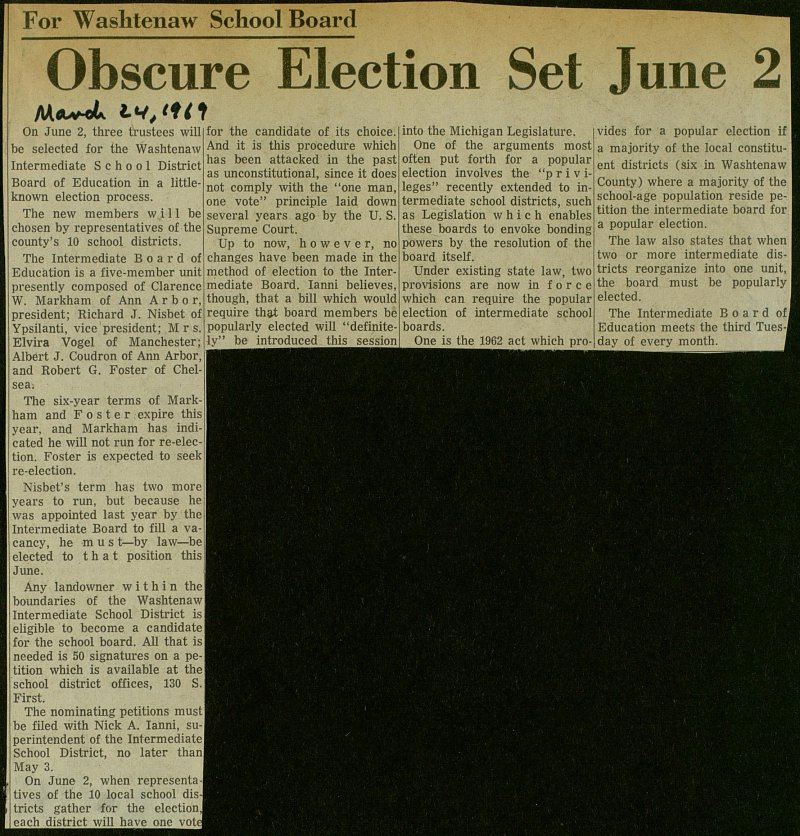Obscure Election Set June 2

On June 2, three trustees will be selected for the Washtenaw Intermedíate School District Board of Education in a little known election process. The new members will be chosen by representatives of the county's 10 school districts. The Intermedíate Board of Education is a five-member unit presently composed of Clarence W. Markham of Ann Arbor, president; Richard J. Nisbet of Ypsilanti, vice president; Mrs. Elvira Vogel of Manchester; Albert J. Coudron of Ann Arbor, and Robert G. Foster of Chelsea. The six-year terms of Markham and Foster expire this year, and Markham has indicated he will not run for re-election. Foster is expected to seek re-election. Nisbet's term has two more years to run, but because he was appointed last year by the Intermediate Board to fill a vacancy, he mus t- by law- be elected to that position this June. Ány landowner w i t h i n the boundaries of the Washtenaw Intermediate School District is eligible to become a candidate for the school board. All that is needed is 50 signatures on a petition which is available at the' school district offices, 130 S. First. The nominating petitions must be filed with Nick A. Ianni, superintendent of the Intermediate School District, no later than May 3. , On June 2, when representatives of the 10 local school dis-l tricts gather for the election J [each district will have one vota for the candidate of its choice. And it is this procedure which has been attacked in the past as unconstitutional, since it does not comply with the "one man, one vote" principie laid down several years ago by the U. S. Supreme Court. Up to now, h o w e v e r, no changes have been made in the method of election to the Intermedíate Board. Ianni believes, though, that a bilí which would require that board members be popularly elected will "definiteïy" be introduced this session into the Michigan Legislature. One of the arguments most often put forth for a popular election involves the "p r i v ileges" recently extended to intermedíate school districts, such as Legislation w h i c h enables these boards to envoke bonding powers by the resolution of the board itself. Under existing state law, two provisions are now in force which can require the popular election of intermedíate school boards. One is the 1962 act which vides for a popular election if a majority of the local constituent districts (six in Washtenaw County) where a majority of the school-age population reside petition the intermedíate board for a popular election. The law also states that when two or more intermedíate districts reorganize into one unit, the board must be popularly elected. The Intermedíate Board of j Education meets the third Tues-I day of every month.
Article
Subjects
Ann Arbor News
Old News
Nick A. Ianni
Clarence W. Markham
Albert J. Coudron